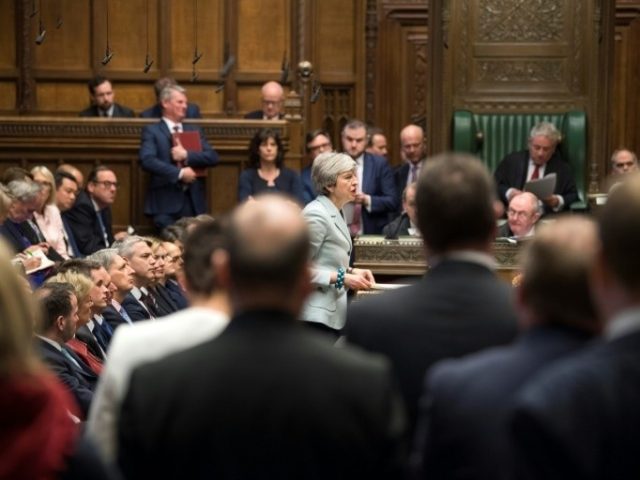Britain’s predominantly anti-Brexit Members of Parliament voted Monday evening to take control of the Brexit process from Theresa May, but a spokesman has said the government is not necessarily going to accept what Parliament says.
Anti-Brexit activists and lawmakers celebrated the passing of a motion enabling indicative votes Monday night, believing the development would see even further control over the Brexit process taken out of the hands of the government and passed away, but speaking Tuesday the health secretary said it was not guaranteed the non-binding votes would be heeded.
Speaking as a representative of the government on the BBC radio Today programme, Matt Hancock argued that despite the apparent defeat of May’s deal, Parliamentarians persistently voting against her deeply unpopular new treaty with the European Union actually makes it a more likely outcome.
The health secretary said:
If anything, yesterday in the House of Commons demonstrated that the option of no deal simply won’t be allowed by the Commons and the best way through this impasse is the one deal that has been negotiated with the EU, that can be delivered quickly now… the options are narrowing and that demonstrates that if you want to deliver on the result of the referendum – and I think we must – and in a way that supports the economy and keeps the stability for people’s jobs, then vote for the prime minister’s deal.
Addressing pro-Brexit elements of the Conservative Party who had been voting against the Prime Minister’s deal not because they wanted to cancel Brexit, but because they wanted to see it happen properly, Mr Hancock said pursuing that further was not pointless as “no deal is clearly now not going to happen.”
In an apparent reversal of his previous position and seeming to accept Hancock’s point of view, Brexit poster boy Jacob Rees-Mogg has now indicated he could vote for May’s deal in the future. Until recently, Rees-Mogg had said May’s deal was worse than staying in the European Union.
Speaking Tuesday morning, Mr Rees-Mogg said: “The choice seems to be Mrs May’s deal or no Brexit.”
Health minister Hancock also insisted that the government would not necessarily be listening to the forthcoming votes being brought by Parliament. Using the typically obscuring language of the British political class, he said on BBC radio Tuesday morning:
…we can’t pre-commit to following whatever the Commons votes for because they might vote for something completely impractical, they might vote for two things that are incompatible, or vote for nothing at all. We cannot say – absolutely, whatever they pass.
Positioning the government as a reasonable arbiter working to realise the possible, in opposition to flights of fancy by hardline parliamentarians, he continued:
If the Commons voted for the sun to rise in the West, the government would not be able to implement that. This whole debate has been characterised by people coming in with ideas which we now call unicorns in the political debate.
Wire service the Associated Press reported these comments as the government showing defiance in the face of stiff opposition in Parliament.
The tough words come despite 30 Conservatives, including members of the Cabinet, voting against the prime minister last night, a significant collapse in party discipline.
Britain had been legally due to leave the European Union on March 29th — a date promised 108 times by the prime minister in Parliament. But by agreement with the EU, the date has now been set back to April, and Parliamentarians are continuing to work to frustrate the Brexit vote. Whether the British government will respect the decision of the British people and take the country out of the European Union, or ask them to vote again until they give the right answer, is yet to be seen.
Oliver JJ Lane is the editor of Breitbart London — Follow him on Twitter and Facebook

COMMENTS
Please let us know if you're having issues with commenting.